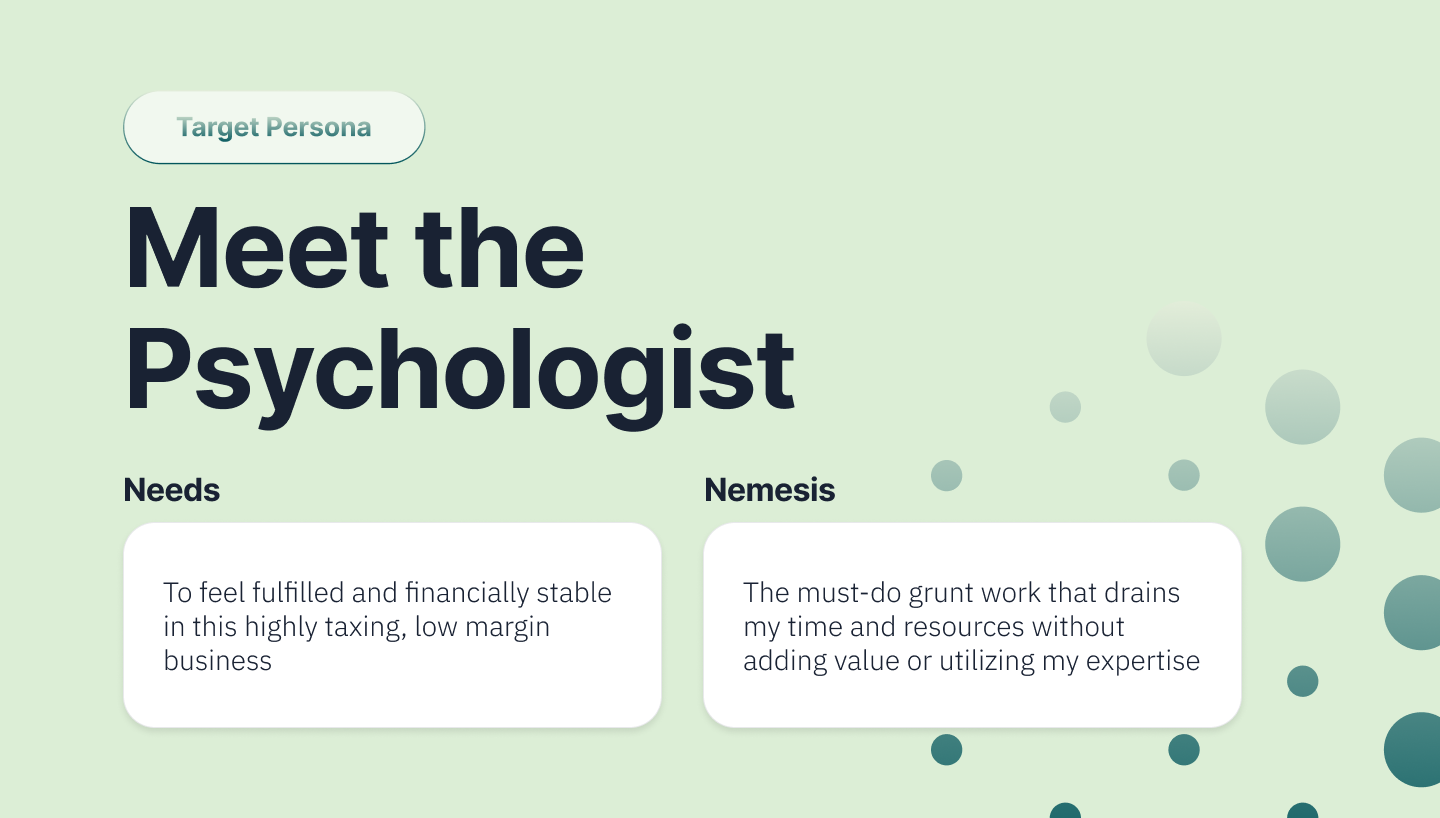A chance encounter led us to one of the biggest pain points in modern mental health care.

Following the Thread into Mental Health
That conversation sparked a broader investigation into the mental health landscape. We knew the field was straining under long waitlists and rising demand—but we wanted to understand the hidden forces behind those delays.
We started with secondary research: public health reports, academic studies, and reimbursement data. What we found was startling:
- Nearly 30,000 people undergo psychological assessments every day in the U.S.
- Waitlists to see a psychologist often stretch 6–14 months
- Even after the visit, patients wait 6–8 more weeks for a final diagnosis
At the center of this logjam? Report writing—a time-consuming, manual, cognitively demanding process that clinicians often struggle to bill for.
Testing the Signal: Was This Pain Widespread?
We conducted a series of informal calls with psychologists from various practice types—private, hospital-based, academic—to validate the signal. Every one of them confirmed the same thing:

This was more than a frustrating task—it was the bottleneck that constrained capacity, delayed care, and burned out clinicians. And yet, few startups were tackling it, because it’s not flashy. It’s messy, regulated, and deeply human work.
A Hidden Market Within a System in Crisis
The deeper we dug, the clearer the opportunity became. Diagnostic report writing alone represents a $400M+ slice of a $9B mental health assessment market. But the larger opportunity is even more compelling.
Solving this pain point doesn’t just unlock productivity—it unlocks trust, access, and data. And with trust and data in hand, we can reimagine the entire diagnostic journey.
The Insight That Sparked the Build
What we uncovered wasn’t just a workflow challenge—it was a human one. Clinicians didn’t want automation for automation’s sake. They wanted a tool that could think with them. That could help them get back to what mattered most: working directly with patients.
That’s when we knew this wasn’t just a good idea. It was the start of Psynth.